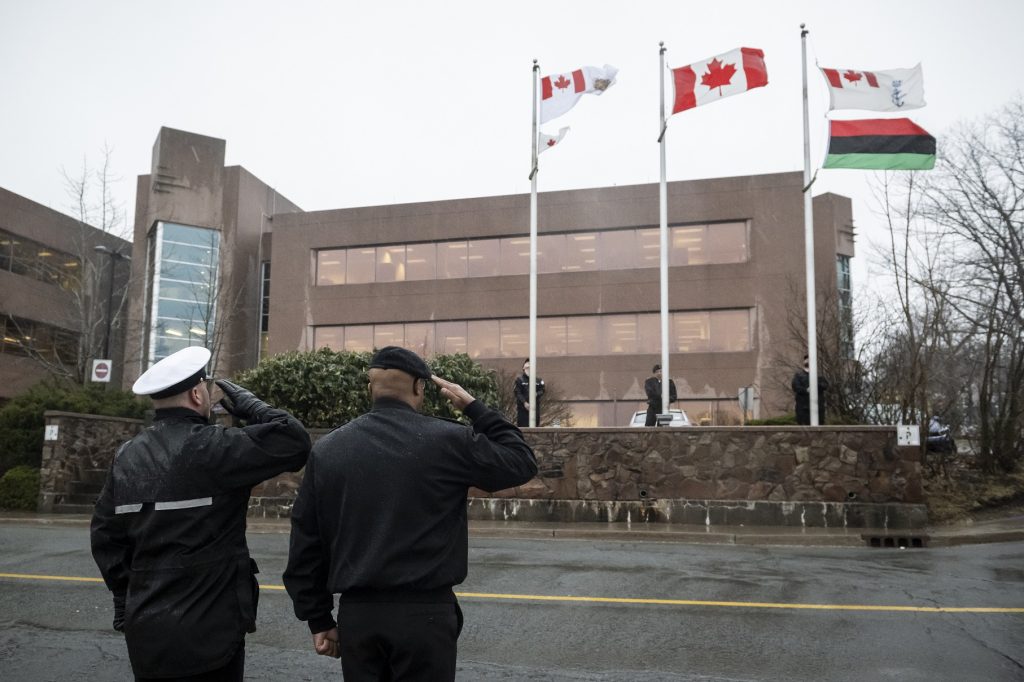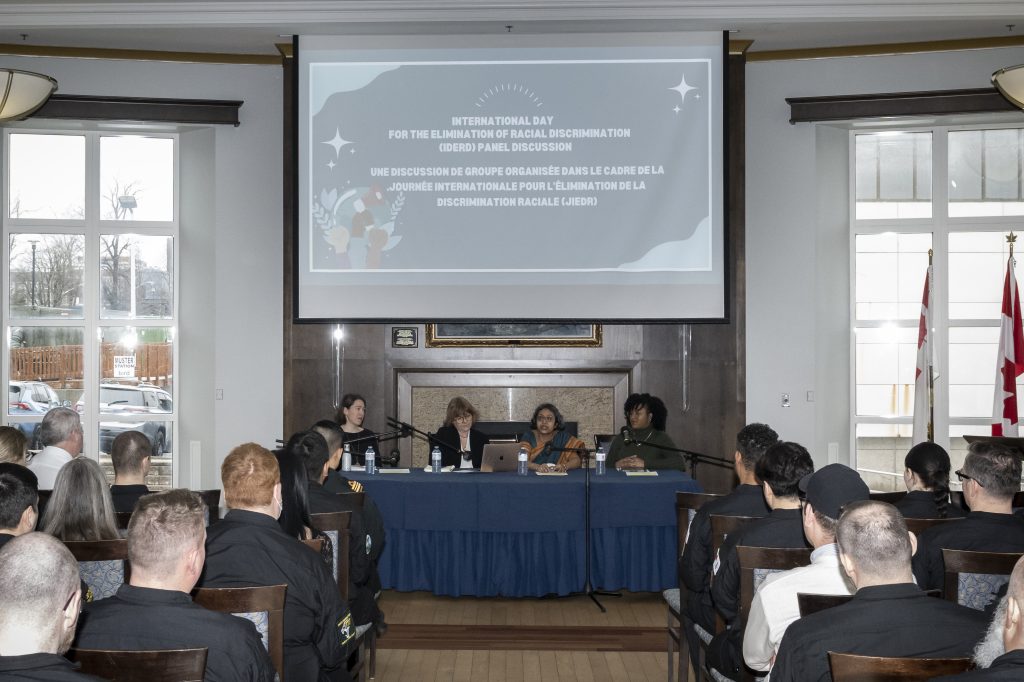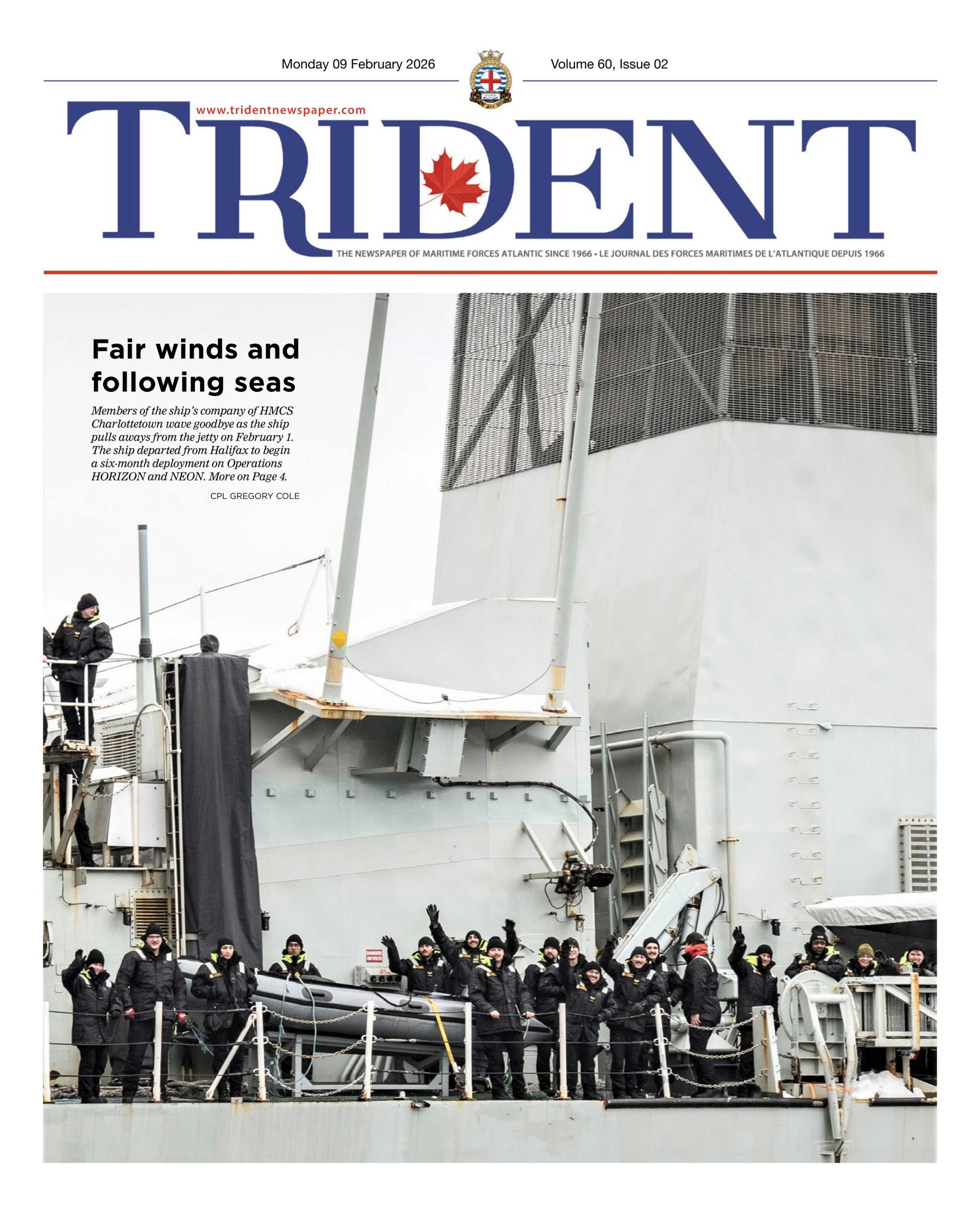
Human rights discussion highlights IDERD event at CFB Halifax
By Nathan Stone,
Trident Staff

In honour of the International Day for the Elimination of Racial Discrimination (IDERD), Canadian Forces Base (CFB) Halifax hosted a panel on the topic of human rights on March 21st. The event was organised by the Defense Visible Minority Advisory Group (DVMAG).
Maritime Forces Atlantic / Joint Task Force Atlantic Chief of Staff Captain (Navy) (Capt(N)) Beth Vallis opened the talk by speaking on the importance of the day and the ongoing efforts in the Canadian Armed Forces (CAF), and broader society, to combat racism and discrimination.
“We recognize the impacts of racial discrimination on racialized individuals, communities and societies, while calling on individuals and organisations to work to eliminate all forms of racial discrimination, injustice, systemic racism and hate.”
Panellists included Dr. Leah Sarson of Dalhousie University, Dr. Madhuparna Gupta of Saint Mary’s University, Lawyer Megan Ross of Path Legal, and Janelle Brooks, co-founder of POC Arch, an organisation dedicated to highlighting architectural accomplishments of people of colour. The discussion focused on human rights in relation to racism, and how to effect positive change.
“I wanted to bring these scholar practitioners together today to talk about how change occurs and how we think about the relationship between law and society when we’re thinking about cultural change,” Sarson said in introducing the group.
The panellists took turns speaking on a series of questions around human rights, law and society. Much of the discussion centred around questions of institutional racism and the limitations of laws and policies in creating societal change.
“This day provides an ideal time for us to examine why institutional changes have not created the social change that we hoped they would,” Ross said.
The panel touched on the need for people to scrutinise the institutions they work within and to re-examine their own beliefs.
“We are all living in a system that has really problematic views and we have adopted some of those without knowing it,” Ross said.
“So it’s all of our jobs to actively look at how we see race in our society and to actively work within our own selves to address those ideas we may have taken on without realising it.”
The panel also weighed in on several current human rights related subjects including mass migration, reactionary political movements, and the loss of community spaces.
The panellists also opened the floor to questions from the audience. Several CAF personnel took the opportunity to share their feelings and experiences regarding racism and asked for input from the panel.
In her closing remarks, Capt(N) Vallis spoke about the need for the CAF to continue and improve its work to eliminate racism at an institutional level.
“It is hard, but we need to do it, and we need to do better.”






